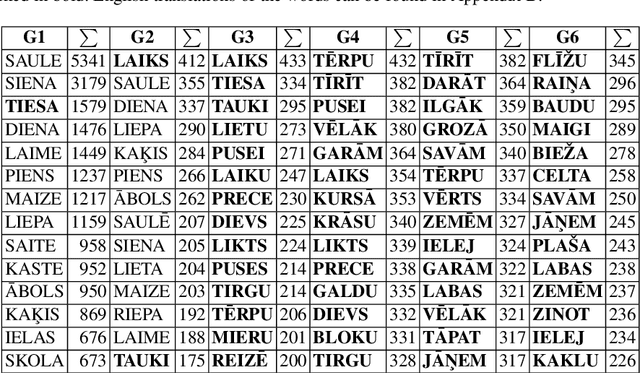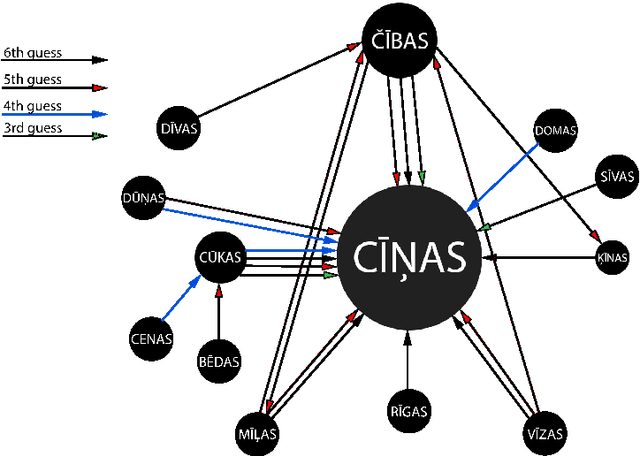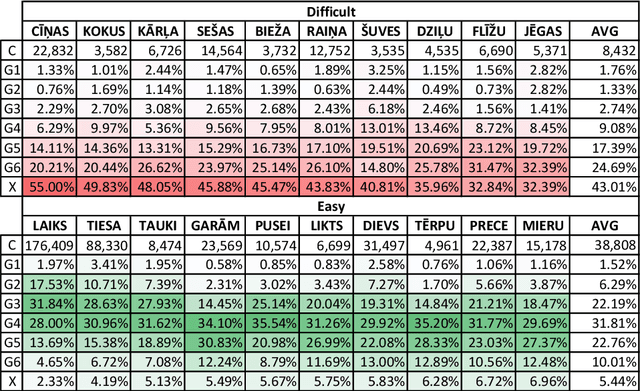How Masterly Are People at Playing with Their Vocabulary? Analysis of the Wordle Game for Latvian
Paper and Code
Oct 04, 2022



In this paper, we describe adaptation of a simple word guessing game that occupied the hearts and minds of people around the world. There are versions for all three Baltic countries and even several versions of each. We specifically pay attention to the Latvian version and look into how people form their guesses given any already uncovered hints. The paper analyses guess patterns, easy and difficult word characteristics, and player behaviour and response.
* In Proceedings of the 10th Conference Human Language Technologies
- The Baltic Perspective (Baltic HLT 2022)
 Add to Chrome
Add to Chrome Add to Firefox
Add to Firefox Add to Edge
Add to Edge